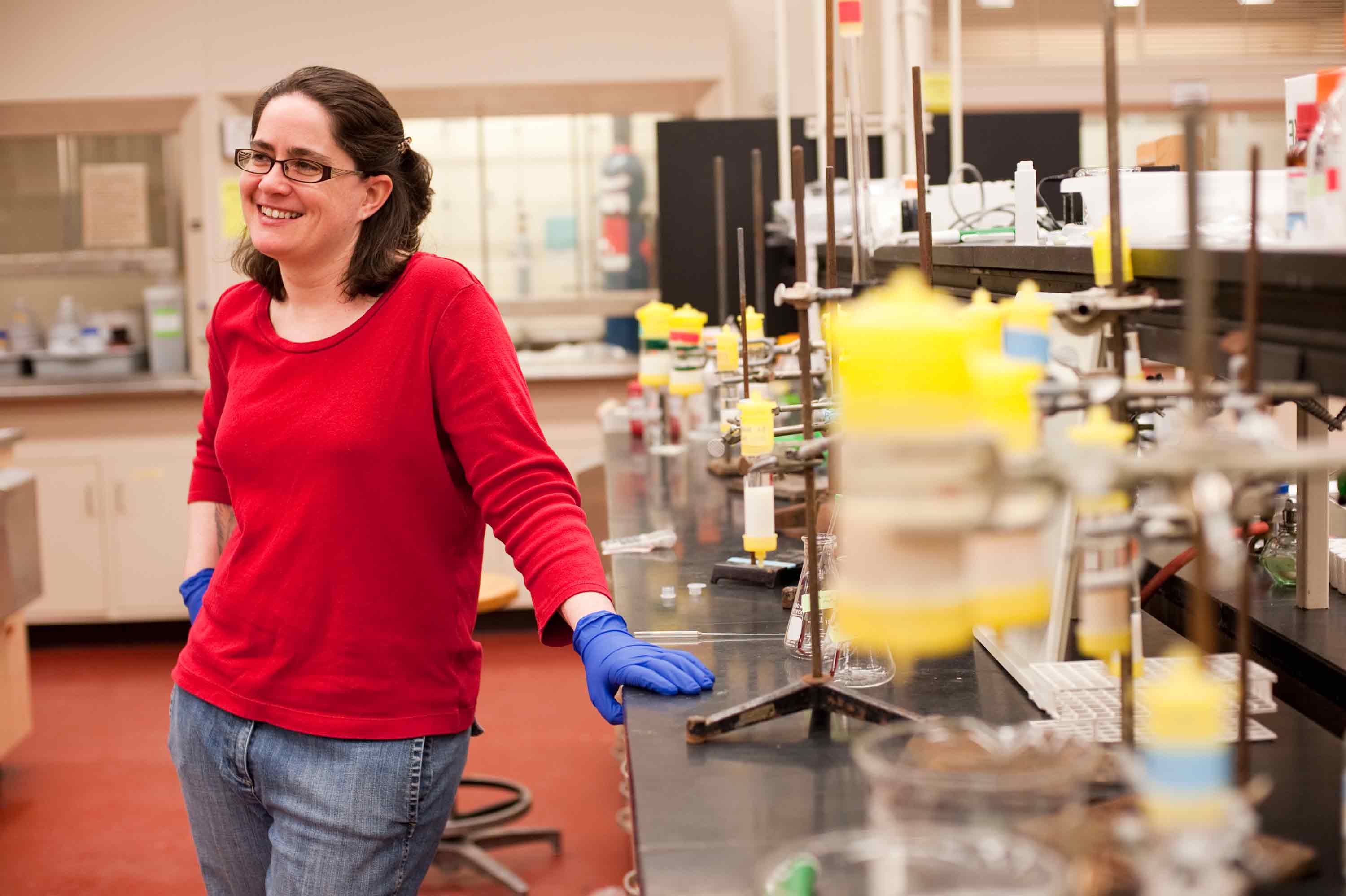Even though I knew the University of Rochester is well known for its science and engineering programs, I couldn’t have expected that I would be part of a community so open to getting undergraduate students involved in research. I knew from the start that I wanted to do research in biology—that was one of the main reasons I chose to attend Rochester.
However, when I first arrived, I was convinced that I’d have to wait until at least my sophomore year to get started. Surely, I thought, there was no way that anyone would let a freshman with just a little bit of previous research experience work in their lab. However, after talking with a few upperclassmen, I learned that I was actually very wrong. While it is true that it is a little bit harder to find a research position as a freshman, most of the professors here are excited to start working with young, passionate minds at the very start of their scientific careers.
There are a large number of labs both at the River Campus and the Medical Center, and the process of finding the right lab can certainly seem overwhelming. Many freshmen have no idea where to start when searching for a research position. So I’ve outlined a few steps to try to eliminate some of the guesswork in the process:
1. Find a lab you like.
Depending on your area of study, the number of labs available to you will vary. However, everyone who wants to do research should be able to find an interesting lab on campus. Personally, I went to the Department of Biology webpage and looked through the research that’s been conducted. I found current research being conducted by biology faculty and short abstracts for each project.
You’ll find that every department has a similar page for their research. There are also a number of opportunities to work in the labs at the Medical Center.
By reading abstracts, I found the labs that conduct research in the fields I’m most interested in. While there was one lab I was particularly interested in, you should identify at least a couple of labs as potential options, since there is a significant chance that any given lab will not currently be offering a position for an undergraduate student.
2. Email the professor.
You should write a polite introductory email to the professor in whose lab you would like to work. Indicate your major, previous research experience if you have some, and what you would specifically like to be doing in their lab. Depending on the time commitment you’re willing to accept and the previous lab experience you have, you could volunteer in the lab for the purpose of simply gaining experience or you could work in the lab as a part of the independent research study course (IND 395). Such courses usually demand at least 12 hours a week to be spent in the lab, in addition to a final report, so you should think carefully about whether you have enough time to dedicate to this option. It’s a good idea to either send your resume in the email or to bring it to the interview itself. There are a number of university resources you can use to craft a good resume.
Don’t worry too much if you don’t have previous research experience to include in your resume. Professors are perfectly aware that most of the students coming to college did not have the opportunity to work in a lab before. Also, you will be assigned a mentor (usually a graduate or post-doctoral student) who will help you get started and answer all of your questions.
3. Meet the professor.
Don’t worry if the professor does not reply or he/she rejects you. Professors are very busy and they simply cannot answer every email they receive. Furthermore, their labs can hold only so many students, and they won’t always have an open spot for an undergraduate. If the professor has an open position, he/she will probably want to meet you first for an interview. You will likely talk about your interests, previous experience, and reasons you want to work in their lab. You should familiarize yourself a little bit with what is being done in the lab, and maybe even read the abstracts of a few papers the lab has published recently. Don’t be late to the interview and try to relax—the interview mainly serves the purpose of assessing whether your interests meet with what the lab can offer you.
Personally, I had a brief, 20-minute conversation with my professor. We talked about the previous research experience I had, about what I would like to get from the lab, and how the lab could help me in furthering my academic career. I knew almost immediately that that lab would be a perfect fit for me, since I was so interested in the topics of their research. I loved the papers that I had read, the atmosphere of the lab, my professor, and just about everything else. What I have learned and experienced so far has been amazing, and I hope to continue my work in the lab for some time to come.
I hope this little story will be helpful to some of you who are interested in research, but just don’t know where to start. Good luck to everyone!


